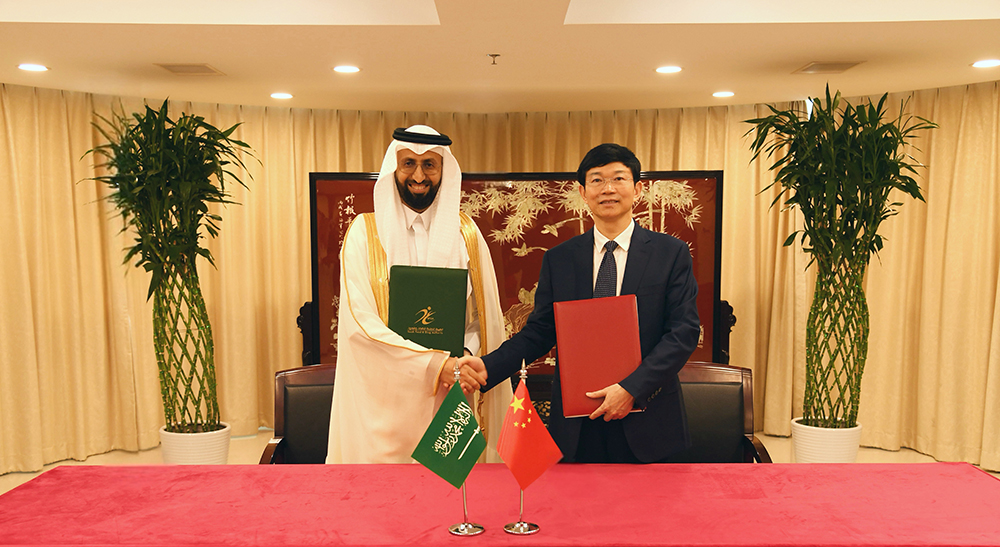中国为何铭记百年屈辱?这个印度人的提问,引起了争议!|老外看中国
时间:2019-11-17 19:12:55 热度:37.1℃ 作者:网络
专栏 | 老外看中国
铁血军事特色栏目,带你了解老外网友对国际大事的看法。一起来看不同文化熏陶下的各国网友究竟会发生怎样的思想碰撞。
近日,在外版知乎Quora上,有一个来自印度的网友提问到:
我始终想不明白。历史上也有其他国家或群体被征服过,我们的民族也曾经被英国人殖民过。但为什么中国人偏偏把这一个世纪的屈辱看得这么重?
是的,这是一种客观存在的有趣现象:相较于大多数国家抑或是文明,中国人似乎对于“历史的屈辱”格外看重。
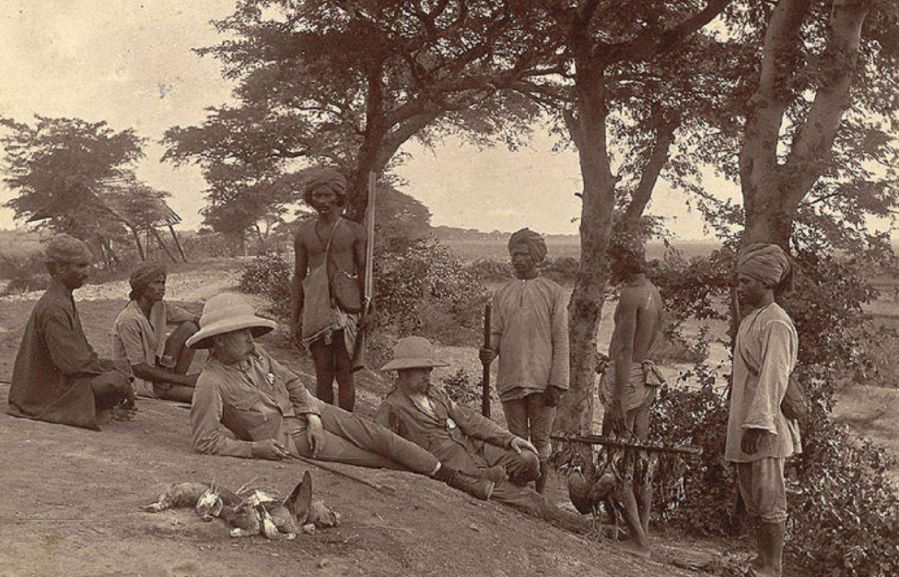
为什么?各国网友纷纷表明了自己的看法。
1、Bu11ism
This question strikes me as strange. It''''''''s like asking why is the interbellum period such a big deal in Europe? why do Americans make such a big deal of slavery?
你这问题问得倒也奇怪。这就像是在问,为什么欧洲至今还把两次世界大战看得这么重?为什么美国人把当年的奴隶制看得这么重?
"Why is the Trail of Tears such a big sticking point for Native Americans?"“Why do the Jews care so much about the Holocaust?”Well because all these issues are obxtively big deals.
“为什么美国西部开发史上著名的‘血泪之路’(Trail of Tears) 被今天的美洲原住民看得这么重?”“为什么至今犹太人还把纳粹大屠杀看得这么重?”因为所有这些在客观上本来就是重大事件啊。
2、achmed011235
And historically speaking it''''''''s unfortunate because after the Opium War the Chinese were like yah let''''''''s use barbarian things to beat barbarian things, no big deal but it was the First Sino-Japanese War where the Chinese went oh no this system must change we must have a revolution.
这的确是一段不幸的历史。但如果说鸦片战争之后,中国人大概还只是“好吧,让我们学习野蛮人的方式,去打败野蛮人——没什么大不了”;可中日甲午战争(西方国家称其为第一次中日战争,the First Sino-Japanese War)后,中国人终于意识到“哦,不,这个制度必须改变,我们需要一场革命”。
The modern Chinese national identity is rooted in the result of the First Sino-Japanese War and not the Opium War, but for convenience, the CCP has placed a good chunk of history where it does not belong and ignore many historical achievements by the late Qing court.
当代中国的国家认同根植于甲午战争而非鸦片战争的结果,但中国为了便于(塑造国家认同)把一大段历史错置在了不应该的地方,主动的忽视了清王朝晚期的一些历史贡献。
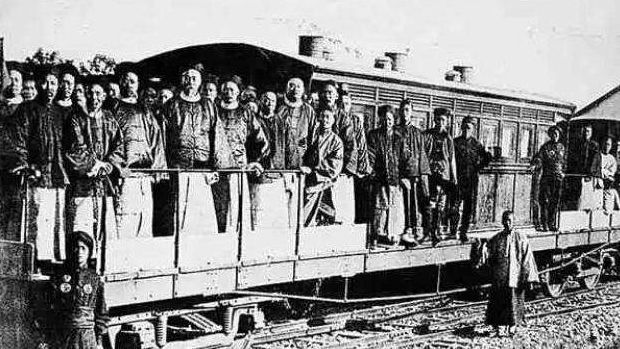
3、ESVVCLP2
The modern Chinese national identity is rooted in the result of the First Sino-Japanese War and not the Opium War, but for convenience of history where it does not belong
中国近代民族认同的根源不是鸦片战争,而是第一次中日战争的结果,但为了方便起见...这是一个有趣的句子。
This is an interesting sentence. Most national identities are contrived – by intelligentsia if not by government. The Sino-Japanese War might have been seen as a bigger turning point at the time, but I don’t think it’s illegitimate that this has now shifted.
大多数现代国家的身份认同,都是由知识精英们设计出来的。中日甲午战争在当时可能的确是一个更大的转折,但我并不认为现在这种叙事有什么不妥。
In the history of Rome, Alaric’s sack of the city in 401 was a much bigger deal than the end of the reign of the last western emperor in 476 – yet now we remember the latter much more prominently. Retrospectively some events take on a greater importance.
例如古罗马历史上,公元401年(日耳曼一支的西哥特人)阿拉里克率军洗劫罗马城的历史影响,远比476年最后一位西罗马皇帝退位要大得多,但现在更为世人熟知的却是后者。很多历史事件都需要后人重新回顾分析,才能真正发现它的重要性。
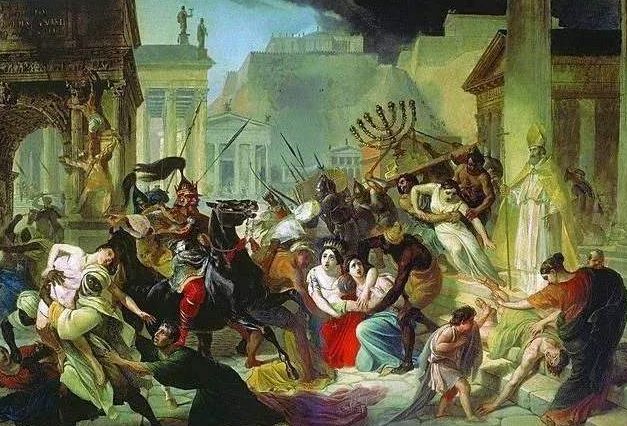
In hindsight in this case the Century of Humiliation now represents a downward spiral that hadn’t yet become immediately obvious.
在这件事上,我们后知后觉地去看,中国人的“百年屈辱史”代表的是一个螺旋式不断沉沦的世纪,只是鸦片战争后的中国人恐怕还没能马上意识到而已。
National identities are mythologised collective imaginings – not factual accounts of history. Even where they miss an enormous amount of nuance – or even run counter to the facts on the ground – they are still valid.
国家认同就是一种被神话了的集体想象,而不是对历史的真实描述。有的时候它会忽略大量历史细节,有的时候甚至与史实完全违背——但你不能否认它的有效性。
China’s identity is no more or less contrived than any other. China’s history for the past ~180 years has been increasingly defined by foreign dominance. It’s natural to view the Opium Wars as the beginning of that trend
中国人的国家认同里被人为设计出来的成分,既不比其他任何国家更多,也不更少。从180年前开始,中国的历史就越来越强烈地被外国列强的入侵和支配所定义。将鸦片战争视为这一进程的起始点,也是很自然的。
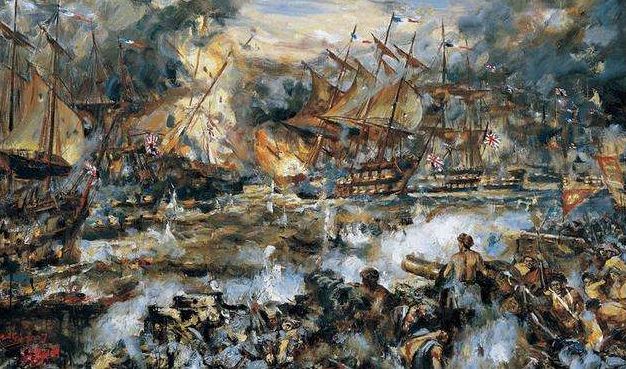
4、lowchinghoo
Century of Humiliation is just a section in Chinese history textbook. There are taught in school as an era of China''''''''s struggle of transitioning into a modern era. I beg to differ many narrative here that say it serve only the purpose of boosting up the nationalism of Chinese people.What they learn about the important history lesson of Century of Humiliation.:
《百年耻辱》只是中国历史教科书中的一个章节。学校里的教育是为中国向现代转型的奋斗时代(而服务)。我不同意这里的许多说法,他们说这只是为了增强中国人民的民族主义。他们从百年耻辱的重要历史教训中学到了什么:
1) Qing dynasty failed to adopt science to modernise China.
(1)清朝未能采用科学使中国现代化。
2) Ming and Qing dynasty protectionism and border locking policy make China failed to adopt new idea from the west to reform and evolve China. But they create a self sustainable ecological system it just not evolve.
(2)明清保护主义和边防封锁政策使中国未能采纳西方的新思想来改革和发展中国。但它们创造了一个自我维持的生态系统,而不是进化。
3) When a country is weak it will be succumbed to and bullied by strong countries, in this particular case bullied by imperialism.
(3)当一个国家弱小时,就会屈从于强盛的国家,被强盛的国家欺负,在这种情况下,就会被帝国主义欺负。
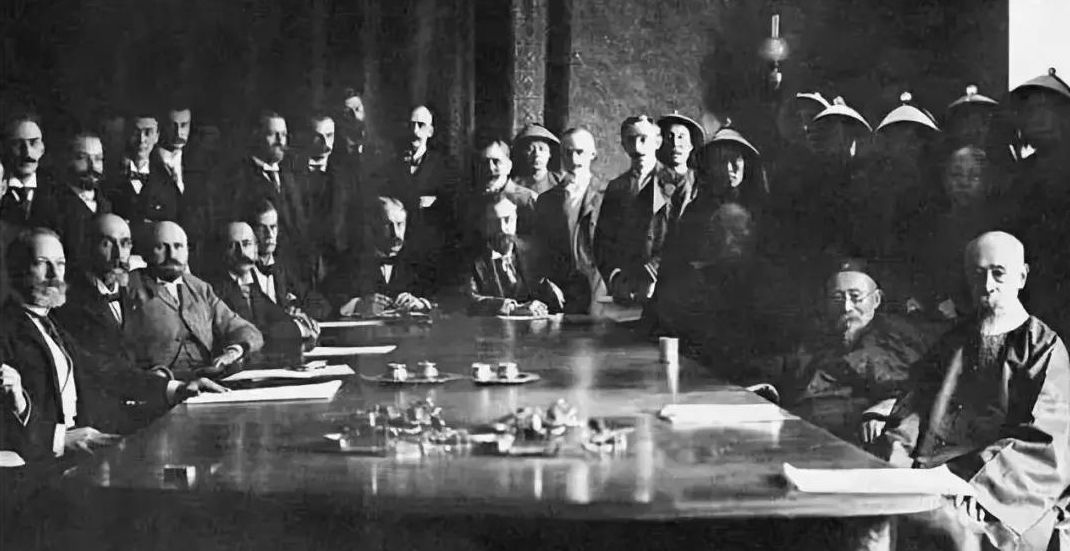
4) The seed of China revolution has been planted during that time and many school of thoughts come out so it is important to talk about it.
(4)中国革命的种子是在这一时期播下的,很多学派都出来了,所以说起来很重要。
5) They lost a lot of wars and signed a lot of Unequal Treaties some still affect China until today like Taiwan, Macao. Hong Kong.
(5)他们输掉了许多战争,签订了许多不平等条约,其中一些直到今天仍影响着中国,如台湾、澳门。香港。
6) They face hardship when they try to resist invasion and strengthen their country. They tried a lot of methods through economic reform and technology advancement but also failed a lot of time. So there are a lot of lessons to be learned through their failure.
(6)抵抗侵略,巩固国家,面临困难。他们通过经济改革和技术进步尝试了很多方法,但也失败了很多次。所以从他们的失败中可以学到很多教训。
7) They tried to unite their people to strengthen the countries but there were a lot of political infighting, power grabbing and civil wars.
(7)他们试图团结人民以加强国家实力,但却发生了许多政治内讧、权力争夺和内战。
There are many historical lessons to be learn during that period because China during that period is a period of fail state. So there are a lot of article written about it, it is importan because ''''''''Failure is the mother of Success'''''''' and Chinese are a nation that emphasizes learning from failure and history... Some nation especially former imperial nation don''''''''t have this section in their history textbook so they may think China is using it to ''''''''brainwash'''''''' their children, I think this is a misunderstanding.
这一时期的中国是一个失败的国家,有许多历史教训值得我们学习。所以有很多文章是这样写的,这很重要,因为“失败是成功之母”,而中国是一个强调从失败和历史中学习的国家。。。有些国家,特别是前帝国主义国家的历史教科书里没有这一节,所以他们可能认为中国在用它来欺骗自己的孩子,我认为这是一个误会。
5、GaBeRockKing
There are many historical lessons to be learn during that period because China during that period is a period of fail state......On the contrary, the western imperial and neo-imperial powers have equivalent, "here''''''''s how we screwed up, let''''''''s not do it again" lessons. The difference is, these lessons are typically about the imperialism itself.
“总之,这一时期的中国是一个失败的中国……尤其是那些曾经的帝国主义国家……”刚好相反,西方前帝国主义、新帝国主义国家(教育)都有同样多的“我们哪里搞砸了……我们不能再这样做”的课程。不同的是,这些课程通常是关于“帝国主义”本身的。
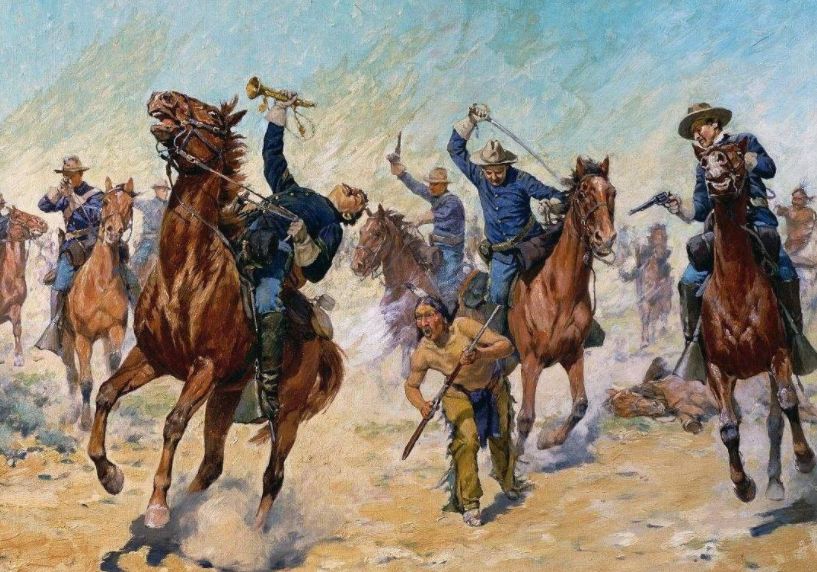
For example, as an American, I learned about the american-indian wars and trail of tears in school, where the lesson learned was that we should endeavor not to act in these immoral ways again. But what''''''''s different from the way china does things is that, for the most part, the subtext of history lesson is, "we did moral wrong, but pragmatic good."
例如,作为一名美国人,我在学校里学到过美国-印第安战争、“血泪之路”等知识,老师教导我们其中的教训,就是我们要尽可能不再以如此不道德的方式行事。但和中国的教育不同之处在于,美国历史教育的潜台词大多是“我们在道德上犯了错误,但客观上却干了件好事”
That is, that the american-indian wars still let us spread over the continent from east to west. It''''''''s impolitic for teachers to say "the genocide of the natives directly contributed to america''''''''s current wealth and prosperity, at least for the people who aren''''''''t descended from them," but the point becomes obvious when our education system condemns the actions taken, but not the results obtained.
比如说,美国-印第安战争毕竟让我们从东到西得到了整个大陆。老师们当然不会明目张胆地说“对原住民的种族灭绝直接导致了美国今天的富裕和繁荣——至少对非原住民后裔而言”,那就太没脑子了。但每当我们的教育体系谴责过去的行为时,从不谈及这些行为产生的成果,这就再明显不过了。
Though funnily enough, that actually supports your main point-- that there''''''''s a mutual misunderstanding between western and eastern cultures. From the perspective of a westerner, the chinese government is instilling an extremely dangerous kind of jingoism that the west deliberately abandoned following the world wars.
然而很有趣,这实际上佐证了你的主要观点,即东西方文化间存在很多误解。从西方人的角度来看,中国正在发展一种极端危险的主义,而这恰恰是西方国家在二次世界大战后刻意要回避的;
From the eastern perspective, the imperial nations of the west are completely unrepentant, as they make all the right noises about having been morally wrong, but yet feel no desire to shift from the position on top of the heap that imperialism bought them.
站在中国人的立场上,西方帝国主义国家则是全不悔改,对于曾经的不道德错误,他们嘴上说尽了“对的话”,却没有任何意愿要把屁股从帝国主义行径带给他们的权位上挪开
6、fuzzybunn
Perhaps it makes more sense to ask: despite having had an arguably worse time of it, why doesn''''''''t India view the period of colonization as one of humiliation and shame?
也许换个问法会更有意义:尽管经历了一段可以说是更糟糕的(被殖民)历史,为什么印度从不因此感到耻辱和羞愧呢?
7、kimilime
People form their view of history mainly based on basic education, and in every country, history, as a subject in high school, is taught to serve specific political goals, and China is nothing special.
人们形成基本历史观主要靠的是基础教育,在每个国家,作为一门中学课程的历史课,都需要服务于社会发展,中国也不例外。
So in China, the century of humiliation is emphasized for reasons: Reflect the view of backward relations of production blocking the development of production forces according to historical materialism as a part of Marxism.
所以在中国,着重强调“百年屈辱史”是有原因的:按照马克思的历史唯物主义观,它反映了落后的生产关系阻碍了生产力发展;
8、PLArealtalk
I think the shortest way of explaining this requires understanding of key factors。
我认为最简单的解释方法是了解关键因素。
The Chinese govt and the vast majority of the Chinese people today view themselves as part of an uninterrupted continuation of China as a "civilisation-state" (though that term is not used that often domestically, I think).
中国政府和绝大多数中国人,即使在今天依旧认为自己是中国作为“文明国家”不间断延续的一部分(尽管我认为这个词在国内并不经常使用)。
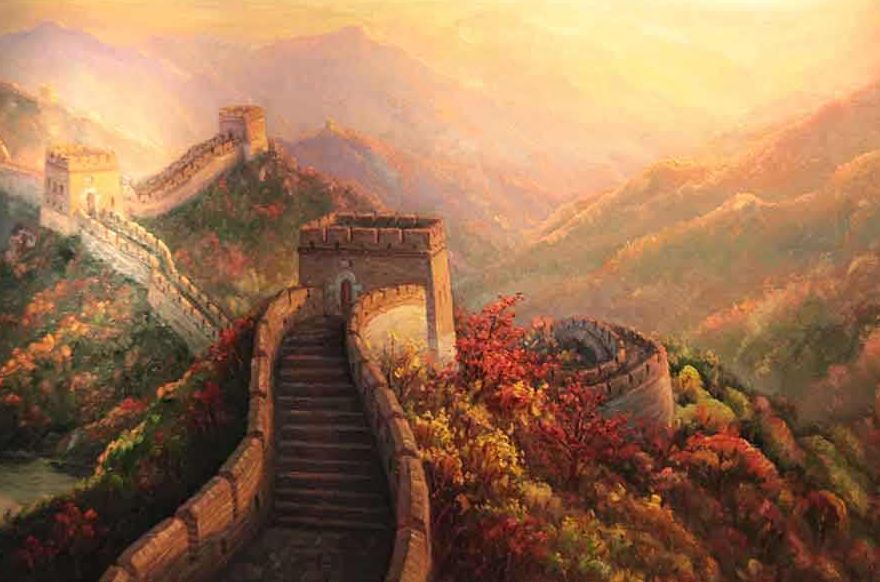
This factor is important because it basically means that events that may be perceived as "ancient history" (100-150 years ago) by other nations is perceived as relevant both culturally and materially for China today and into the future.
这一因素之所以重要,是因为它基本上意味着,被其他国家视为“古代历史”(100-150年前)的事件,无论在文化上还是在物质上,对今天或者是未来的中国,都是相关的。
Imagine that in more than two thousand years, China has been the world's first-class and powerful country, and the huge gap since modern times has made the Chinese people who regard thousands of years of civilization as one have to reflect heavily. They have their own pride and never allow history to reappear!
想象一下,曾经在两千多年的时间里,中国都是世界的一流鼎盛强国,而近代以来的巨大落差,使得将几千年文明看作一体的中国人,不得不去沉重反思,他们拥有自己的骄傲,绝不允许历史重现!
9、TopKekJebait
I think most of Westerners get the idea of century of humiliation wrong.
我认为大多数西方人把中国人的“百年屈辱史”观想错了。
It motivates the Chinese to self-strengthen, and is by no mean a vengeance motivator. They see themselves as the victim of imperialism but they don’t have a “victim mentality” that only blames the invaders and asks for reparations/vengeance.
它不断敦促中国人自强,却绝不是什么复仇的动力。中国人的确把自己看作帝国主义的受害者,但他们并没有那种只会怪罪侵略者、要求赔偿/复仇的“受害者心态”。中国人归咎最多的,还是自己国家当时的积弱不振、腐败无能。

The Chinese blame themselves more than anything for being weak, corrupt and incompetent themselves. They are not asking Europeans countries to repay for their crimes, they are not preparing for a war of vengeance. They never said they were entitled to something because of it or that they deserve something. So I don’t get why it keeps getting brought up as an example of Chinese government ramping up nationalism.
他们没有要求欧洲国家为其罪行进行赔偿,也没在为什么“复仇之战”做准备。他们从没说过他们因此有权得到什么或理应得到什么。所以我不明白,为什么它一直被当作中国强化民族主义的证据。
It does increase national pride when Chinese people see how far they’ve come in contrast to that time, but it is by no mean a way to stir hatred against foreign countries as a tool of nationalism.
中国人回顾“百年屈辱史”,再看到今天的自己,比起那个时代已经走过了多远的历程,发生了多大变化,这的确会增加国家/民族自豪感,但这绝不是在煽动对外国的仇恨以作为某种民族主义工具。
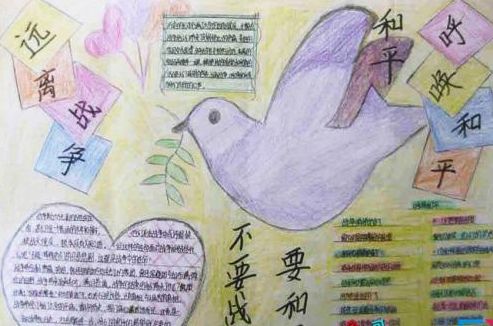
不可否认,对于网友“TopKekJebait”的观点,老铁深表认同:
我认为大多数西方人把中国人的“百年屈辱史”观想错了。
它不断敦促中国人自强,却绝不是什么复仇的动力。中国人的确把自己看作帝国主义的受害者,但他们并没有那种只会怪罪侵略者、要求赔偿/复仇的“受害者心态”。中国人归咎最多的,还是自己国家当时的积弱不振、腐败无能。
事实如此:
对于过去所受到的屈辱,中国人之所以不断地强调和提及,其根本原因主要还是为了不断地用过去的不幸对今天的发展以及可能的懈怠,进行随时的鞭策!
中国人铭记历史,但是当中国强大的那一刻,我们却永远不会重演如西方帝国主义列强一般欺凌弱小的历史!
这是5000年中华文明的基本修养:己所不欲,勿施于人。

